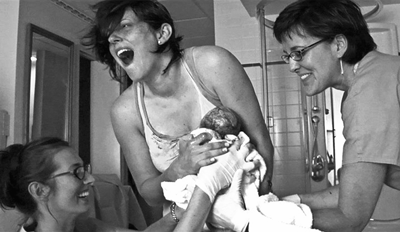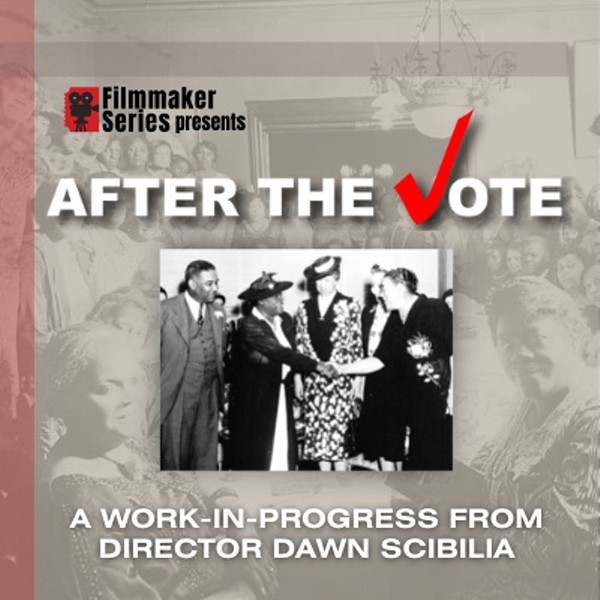
On an average day in the United States, more than 11,000 babies are born. Nearly 10,000 of those births take place in a hospital, where they are attended by an obstetrician and within arm’s reach of the latest in medical equipment and procedures available to birthing women. Less than one percent of children in the US are born at home in the care of a midwife. What was once normal everywhere, and is still widely accepted in Europe, has become startlingly uncommon here. And as the disparity between nature and technology becomes increasingly dramatic, so do the ways in which women in the US are examining their choices and having their babies.
For most, the idea of a woman giving birth outside of a hospital is imprudent at best and, more likely, recklessly dangerous. But for a growing number of people, pregnancy and childbirth are viewed as natural as breathing, a process to be honored and trusted, not treated as a medical emergency. This stark contrast—along with the raw economics of maternal care and some surprising truths about just how safe hospitals are making birthing for women and babies—are central themes in filmmaker Abby Epstein’s most recent documentary, The Business of Being Born.
In reality, and despite our nearly blind faith in medical technology, the US ranks second to last in infant mortality among developed nations, according to Save the Children (April 2006). Further, among the five countries with the lowest infant mortality rates—Japan, Singapore, Sweden, Finland, and Norway—midwives cared for seven out of every ten of birthing women. Perhaps more disturbing is the rate at which medical doctors are now performing Cesarean sections and why: 29.1 percent of all live births in 2004 were delivered by C-section, up 40 percent in just the last 10 years, and in one survey 82 percent of physicians said they performed a C-section to avoid a negligence claim.
The film shines a light on the very personal, very contentious province of childbirth and navigates moviegoers through the past and present state of obstetrics and the big-business mechanism that includes insurance companies, hospitals, and even policy makers. This mechanism, asserts Epstein, continues to “discourage choice and even infringe on parents’ intimate rites, ultimately obstructing the powerful natural connection between mother and newborn child.”
Along the way, Epstein and executive producer Ricki Lake introduce us to OB/GYNs, professional midwives and labor coaches, hospital nurses, medical anthropologists, and public health officials, and ask: Why has the medical model of birth gone unchallenged for so long? Why do so few American women seek the care of midwives, which, according to statistics, are safer and less expensive than hospital obstetrical care? And, most importantly, what are the basic needs of women in labor? What they present in response is a thread of information and viewpoints to which many childbearing women don’t normally have access.
The film’s real impact, however, is in the personal stories of the women it follows, allowing the viewer to bear witness to something that few people ever see: natural, safe home births; images of women having their babies on their own terms, without drama or trauma. In this way, Epstein and Lake become subjects of their own documentary, sharing their experiences as they explore their own birthing choices.
On February 1 at 6:30pm, Maternal-Infant Services Network of Sullivan, Orange, and Ulster Counties, Inc. will host a special benefit screening of The Business of Being Born in SUNY New Paltz’s Lecture Center 100.
“I feel so passionately about women’s choices in childbirth that I would show this movie over and over again if I could,” says Liz Pickett, the event’s organizer and Maternal-Infant Services Network’s perinatal health educator. “People need to understand that they have choices. It’s good to know that these things exist. In other countries midwifery is a primary care system, and it works.”
Following the film, there will be a question-and-answer session with a panel of experts, including Ira Jaffee, MD; Daniel Perkes, MD (Life Care OBGYN); Susanrachel Condon, CNM; Vicki Hedley, LCCE, CD (DONA), PCD (DONA); Mavis Gewant, CCE; and Elan Vital McAllister, president of Choices in Childbirth. Admission is $12 in advance or $15 at the door. To register online, visit www.misn-ny.org, click on the JustGive button on the homepage, and write “BOBB.” when completing the form.
www.thebusinessofbeingborn.com or www.misn-ny.org.
















